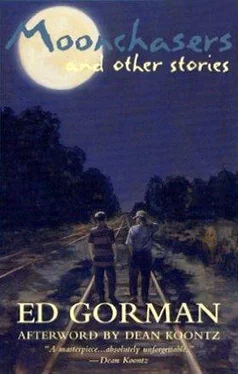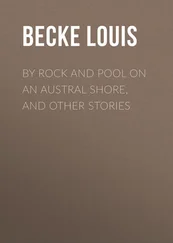We were celebrities of sorts at school again. The new girl even asked if she could interview me for the school paper. Of course when I asked her if she’d like to stop at Hamblin’s some time for a soda, she said, (very politely) No Thank You.
In the spring, Barney’s mom did finally divorce George, and then Barney and all of his family except George moved to Pennsylvania. For the first two months, he wrote every other week. Then I didn’t hear much from him anymore until, eight years later, he was killed in fighting in Vietnam. His wife, a very nice woman named Diedre, called to tell me how much I’d meant to him and to say that she hoped we’d meet some day. Four years after that, Clarence died of liver cancer. Mom went to move in with Debbie, whose husband was a professor at the state university where Debbie was a junior. The professor had left his wife and two daughters for Debbie and Mom wasn’t exactly what you called thrilled about it all.
I was the only one to stay in Somerton. I became Clarence’s business partner in the haberdashery and when he died, I took over completely. I have one son who was born with spina bifida and another son who, I am happy to say, was born in perfect health. My wife, Myrna, is the sweetest, most gentle person I have ever known.
About every five or six years, whenever there’s turnover at the local paper, some twenty-four-year-old reporter comes over to the store and says he’d like to talk to me about the Roy Danton incident. The folks of Somerton never seem to tire of hearing about it. I always agree. My sons, who always like to hear about it, too, would give me hell if I didn’t.
On those occasions when I go to the cemetery to speak with my dead father and my dead friend Barney, I sometimes stop and look at the grave of Stephen B. Cushing. I’m not sure why. Perhaps because I’ve never quite been able to forget how Barney felt sorry for him — and how I, too, felt sorry for him right there at the very end — this man I so despised.
I see his desperate eyes right there at the last — and hear the lone gunshot...
It’s a lot less trouble sometimes, when you just plain and simple hate somebody.
I still go for walks along the tracks sometimes, out where the warehouse is now a small manufacturing plant, and I think of that long-ago summer and it is like a dream somehow — lived out by somebody who was not exactly me, not the me in the mirror today anyway...
And I think of Roy, too, of course. But it’s funny, you know. A few years ago I saw an old Robert Mitchum picture on the tube... and the truth is, Roy hadn’t looked a damn thing like him. Not a damn thing like him at all...
On Thursday she was there again. (This was on a soap opera he’d picked up by accident looking for a western movie to watch since he was all caught up on his work.) Parnell had seen her Monday but not Tuesday then not Wednesday either. But Thursday she was there again. He didn’t know her name, hell it didn’t matter, she was just this maybe twenty-two twenty-three-year-old who looked a lot like a nurse from Enid, Oklahoma, he’d dated a couple of times (Les Elgart had been playing on the Loop) six seven months after returning from WWII.
Now this young look-alike was on a soap opera and he was watching.
A frigging soap opera.
He was getting all dazzled up by her, just as he had on Monday, when the knock came sharp and three times, almost like a code.
He wasn’t wearing the slippers he’d gotten recently at Kmart so he had to find them, and he was drinking straight from a quart of Hamms so he had to put it down. When you were the manager of an apartment building, even one as marginal as the Alma, you had to go to the door with at least a little “decorousness,” the word Sgt. Meister, his boss, had always used back in Parnell’s cop days.
It was 11:23 A.M. and most of the Alma’s tenants were at work. Except for the ADC mothers who had plenty of work of their own kind what with some of the assholes down at social services (Parnell had once gone down there with the Jamaican woman in 201 and threatened to punch out the little bastard who was holding up her check), not to mention the sheer simple burden of knowing the sweet innocent little child you loved was someday going to end up just as blown-out and bitter and useless as yourself.
He went to the door, shuffling in his new slippers which he’d bought two sizes too big because of his bunions.
The guy who stood there was no resident of the Alma. Not with his razor-cut black hair and his three-piece banker’s suit and the kind of melancholy in his pale blue eyes that was almost sweet and not at all violent. He had a fancy mustache spoiled by the fact that his pink lips were a woman’s.
“Mr. Parnell?”
Parnell nodded.
The man, who was maybe thirty-five, put out a hand. Parnell took it, all the while thinking of the soap opera behind him and the girl who looked like the one from Enid, Oklahoma. (Occasionally he bought whack-off magazines but the girls either looked too easy or too arrogant so he always had to close his eyes anyway and think of somebody he’d known in the past.) He wanted to see her, fuck this guy. Saturday he would be sixty-one and about all he had to look forward to was a phone call from his kid up the Oregon coast. His kid, who, God rest her soul, was his mother’s son and not Parnell’s, always ran a stopwatch while they talked so as to save on the phone bill. Hi Dad Happy Birthday and It’s Been Really Nice Talking To You. I–Love-You-Bye.
“What can I do for you?” Parnell said. Then as he stood there watching the traffic go up and down Cortland Boulevard in baking July sunlight, Parnell realized that the guy was somehow familiar to him.
The guy said, “You know my father.”
“Jesus H. Christ—”
“—Bud Garrett—”
“—Bud. I’ll be goddamned.” He’d already shaken the kid’s hand and he couldn’t do that again so he kind of patted him on the shoulder and said, “Come on in.”
“I’m Richard Garrett.”
“I’m glad to meet you, Richard.”
He took the guy inside. Richard looked around at the odds and ends of furniture that didn’t match and at all the pictures of dead people and immediately put a smile on his face as if he just couldn’t remember when he’d been so enchanted with a place before, which meant of course that he saw the place for the dump Parnell knew it to be.
“How about a beer?” Parnell said, hoping he had something besides the generic stuff he’d bought at the 7-Eleven a few months ago.
“I’m fine, thanks.”
Richard sat on the edge of the couch with the air of somebody waiting for his flight to be announced. He was all ready to jump up. He kept his eyes downcast and he kept fiddling with his wedding ring. Parnell watched him. Sometimes it turned out that way. Richard’s old man had been on the force with Parnell. They’d been best friends. Garrett Sr. was a big man, six-three and fleshy but strong, a brawler and occasionally a mean one when the hootch didn’t settle in him quite right. But his son... Sometimes it turned out that way. He was manly enough, Parnell supposed, but there was an air of being trapped in himself, of petulance, that put Parnell off.
Three or four minutes of silence went by. The soap opera ended with Parnell getting another glance of the young lady. Then a “CBS Newsbreak” came on. Then some commercials. Richard didn’t seem to notice that neither of them had said anything for a long time. Sunlight made bars through the venetian blinds. The refrigerator thrummed. Upstairs but distantly a kid bawled.
Parnell didn’t realize it at first, not until Richard sniffed, that Bud Garrett’s son was either crying or doing something damn close to it.
Читать дальше












